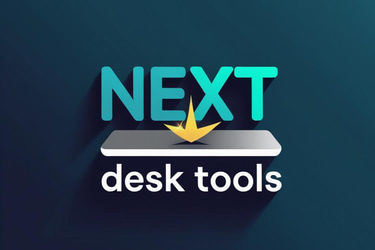Ethics, Bias, and Transparency: What Office Pros Must Know
Stop trusting AI blindly. This guide shows office professionals how to catch bias, verify AI-generated facts, and use Copilot and ChatGPT safely without embarrassing mistakes or ethical problems..
11/19/20256 min read


You've finally started using Copilot or ChatGPT at work. Maybe you're summarizing meeting notes, drafting emails, or cleaning up reports. It feels like magic—until it doesn't.
Here's what nobody mentioned when your IT department rolled out these tools: AI doesn't always get it right. And when it gets it wrong, the consequences land on you.
This isn't about becoming a tech expert or reading white papers on AI ethics. This is about three practical things you need to watch for when using Copilot, ChatGPT, or any AI tool at work—so you don't accidentally create problems for yourself, your team, or your company.
Problem #1: AI Learns from Biased Data (And Brings Those Biases to Your Work)
Let's say you're using Copilot in Word to help draft a job posting. You ask it to write something based on your previous successful hires. Sounds efficient, right?
Here's the catch: If most of your previous hires fit a certain pattern—same schools, similar backgrounds, certain phrases in their résumés—Copilot learns that pattern. It might suggest language that unconsciously favors candidates who match that profile, even if they're not the best fit for the role.
It's not being mean. It's being a mirror. AI tools learn from data, and data reflects the real world—including all its historical biases. Old hiring patterns, customer service scripts, performance reviews, even the way past reports were written. It all gets absorbed.
Where This Shows Up in Your Daily Work
In Microsoft Copilot:
Suggested email responses that sound more formal or casual depending on the recipient's name
Meeting summary priorities that emphasize certain speakers over others
Document suggestions that default to past patterns (even outdated ones)
In ChatGPT:
Job descriptions with gendered language ("rockstar," "aggressive," "nurturing")
Customer response templates that make assumptions based on names or titles
Report summaries that emphasize some data points over equally important others
What You Can Do About It
Review AI suggestions with fresh eyes. Don't just hit "accept." Read what Copilot or ChatGPT wrote and ask: Would I write it this way? Does this treat everyone fairly?
Mix up your examples. When you're asking AI to base something on past work, give it diverse examples. Don't just feed it your top three performers' reviews—include a broader range.
Flag weird patterns. If you notice Copilot always suggests different tones for different names, or ChatGPT keeps using certain stereotypes, mention it to your IT team. They need to know.
Keep human judgment in the driver's seat. AI can help you draft. You still make the final call on anything involving people—hiring, promotions, customer interactions, team communications.
Problem #2: AI Makes Stuff Up (And Says It with Complete Confidence)
This is the big one that trips up late adopters: AI will confidently give you wrong information.
Not "oops, typo" wrong. More like "I cited a completely fake research study" wrong or "I made up a meeting attendee who wasn't there" wrong.
Real scenario: You ask ChatGPT to summarize industry regulations for a client proposal. It gives you three specific regulations, complete with section numbers. You include them in your proposal. Your client checks—none of those regulations exist.
This happens because ChatGPT and Copilot don't "know" things. They predict what words should come next based on patterns. Sometimes they predict wrong. And they never say "I'm not sure about this part."
Where This Shows Up in Your Daily Work
In ChatGPT:
Made-up statistics that sound credible
Fake citations or reference numbers
Details about meetings or conversations that didn't happen exactly that way
- Policy information that's close but not quite right
In Microsoft Copilot:
Meeting notes that include things people didn't actually say
Email summaries that miss important nuance
Data pulled from the wrong documents in your SharePoint
"Facts" from files it misunderstood
What You Can Do About It
Verify everything. Every fact, every number, every name, every date. If ChatGPT gives you a statistic, look it up. If Copilot summarizes a policy, check the original document.
Never use AI-generated content as-is for anything important. Treat it as a first draft. You add the accuracy.
Be extra careful with client-facing materials. If it's going to a customer, a vendor, or senior leadership, double-check every single claim. One made-up fact can tank your credibility.
Tell your team when something's AI-assisted. Add a line to important documents: "Drafted with AI assistance, reviewed and verified by [your name]." It protects you and sets expectations.
Problem #3: AI Won't Tell You How It Decided (The Black Box Problem)
Here's what makes AI frustrating for office workers: You can't see how it reached its conclusion.
Why did Copilot prioritize these three emails as urgent? Why did ChatGPT summarize the quarterly report this way and not another way? Why did it suggest this vendor over that one?
You don't know. And when your boss asks "Why did you recommend this?" you can't just say "Because Copilot told me to."
Where This Shows Up in Your Daily Work
In Microsoft Copilot:
Can't explain why it flagged certain emails as important
Won't show you why it picked certain excerpts for meeting summaries
Doesn't reveal how it decided what information was relevant in a document search
In ChatGPT:
Gives you an answer with no way to trace its reasoning
Summarizes differently each time with no clear pattern
Makes recommendations without showing its logic
What You Can Do About It
Document your process. Keep notes on what you asked the AI to do, what it suggested, and how you modified it. If someone questions your work later, you have a record.
Don't automate high-stakes decisions. Anything involving budgets, people's jobs, client relationships, or compliance issues—keep a human in the loop. Use AI to help, not to decide.
Ask "Can I explain this?" Before you accept an AI suggestion, ask yourself: Could I walk my manager through how we reached this conclusion? If not, don't use it.
Save your prompts and outputs. Take screenshots or save the conversation. If something goes sideways later, you'll need proof of what you asked and what the AI actually said.
The Data Privacy Thing Nobody Talks About
Quick but important: When you're using ChatGPT or Copilot, where does your data go?
Enterprise ChatGPT (the paid business version) keeps your data more private. Your chats don't train the model, and there are better security protections.
Free ChatGPT? Different story. Your inputs can be used for training. Don't put confidential client info, employee data, or proprietary information into the free version.
Microsoft Copilot in your work environment (Microsoft 365 Copilot) stays within your company's systems. That's good. But it still accesses your emails, documents, and chats to work its magic. If you're handling sensitive information, know what Copilot can see.
What You Can Do About It
Check with IT before using AI tools for sensitive work. Ask: Is this approved for confidential data? Where does the information go?
Never put truly sensitive info in free AI tools. Client contracts, employee reviews, financial details, passwords, proprietary processes—keep them out of free ChatGPT.
Use your company's approved tools. If your workplace provides enterprise AI tools, use those for work stuff. They have better protections.
You're Still the Professional Here
Here's the thing that makes AI both useful and tricky: It doesn't replace your judgment. It amplifies it.
If you're already careful, thorough, and fair, AI helps you work faster. If you're sloppy or biased, AI makes that worse. It's a mirror and a multiplier.
The good news for late adopters? You already have the most important skill: healthy skepticism. You didn't rush to adopt AI, so you're less likely to trust it blindly. That's an advantage.
Four things to remember when using Copilot or ChatGPT at work:
AI reflects the past—watch for bias. Review suggestions for fairness, especially in hiring, performance reviews, and customer communications.
AI invents facts—verify everything. Never trust statistics, names, policies, or citations without checking them yourself.
AI doesn't explain itself—document your process. Keep records of what you asked, what it suggested, and how you modified it.
AI needs boundaries—protect sensitive data. Use enterprise tools for confidential work, not free consumer versions.
The Bottom Line
You don't need to become an AI expert to use these tools safely. You just need to treat AI like the junior assistant it is—helpful but needs supervision, fast but needs fact-checking, confident but needs a second opinion.
Use Copilot and ChatGPT to speed up your work. Just keep yourself in the driver's seat. Check the output. Verify the facts. Make sure decisions are fair. And never let AI do something you can't explain or defend.
That's how you get the productivity boost without the ethical mess—or the embarrassing mistake that ends up in your performance review.
Ready to use AI safely and confidently at work? Grab the FREE 50+ AI Prompts Cheat Sheet—packed with ready-to-use prompts for Copilot and ChatGPT that help you avoid common pitfalls while getting more done in less time. Plus, you'll get The AI Office Hack delivered to your inbox every Tuesday and Thursday with practical tips you can use the same day.
[Get Your Free Prompts Cheat Sheet →]9
(Note: Written with a little AI help—and plenty of human judgment.)
